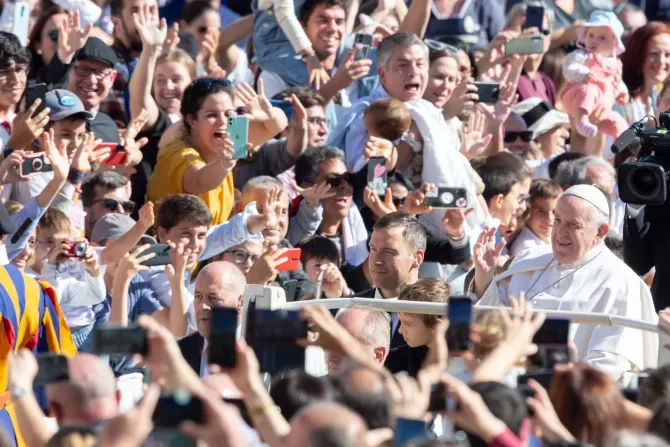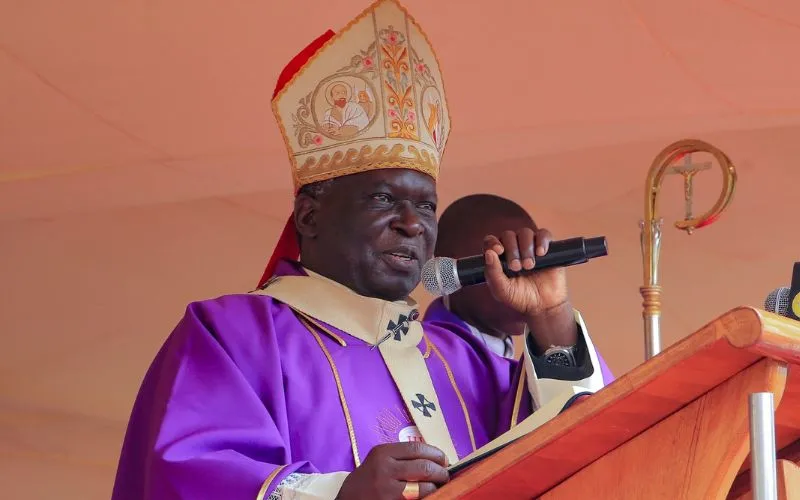Saturday’s meeting opened with a greeting from Communion and Liberation President Davide Prosperi and two member testimonies.
Prosperi succeeded Father Julián Carrón, who resigned as Communion and Liberation president in November 2021, following changes from the Vatican which set limits on the terms of leaders of international associations of the faithful.
The 72-year-old priest had served as president of the international fraternity since 2005, the year of its founder’s death.
Pope Francis, in his speech, acknowledged that the movement has been in a period of transition, “not at all easy,” following the death of the founder Father Giussani.
He also commented on a “time of crisis” in the movement. “We have to thank Father Julian Carrón for his service in leading the movement during this period and for keeping the rudder of communion steady with the pontificate,” Francis said.
“However,” he continued, “there has been no shortage of serious problems, divisions, and certainly even an impoverishment in the presence of such an important ecclesial movement as Communion and Liberation, from which the Church, and myself, hopes for more, much more.”
The Holy See, in September 2021, appointed a special delegate to oversee Memores Domini, the lay consecrated branch of Communion and Liberation, in the wake of concerns about governance.
“Times of crisis are times of recapitulation of your extraordinary history of charity, culture and mission; they are times of critical discernment of what has limited the fruitful potential of Father Giussani’s charism,” the pope said. “They are times of renewal and missionary relaunch in light of the current ecclesial moment, as well as the needs, sufferings and hopes of contemporary humanity.”
“Crisis,” he underlined, “makes for growth. It should not be reduced to conflict, which undoes.”
He encouraged the movement to foster unity amid diversity, and to not waste any time with “gossip, mistrust, and opposition.” He added: “Please, do not waste time.”








